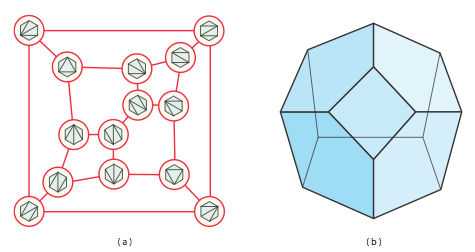Is the secondary polytope of a simplicial polytope necessarily simplicial?
-
6$\begingroup$ Dear Stephen. The role of MathOverflow being not only to get answers to questions, but also to teach the readers some general math knowledge, it would help if you quickly reminded the definition (or idea of definition) of the secondary polytope of a polytope. $\endgroup$– André HenriquesCommented Apr 23, 2013 at 21:41
2 Answers
The secondary polytope of a simplicial polytope is not neccessarily either simplicial or simple. The secondary polytope of the cyclic 4-polytope with 8 vertices in given as an example in by Billera, Filliman, and Sturmfels in "Constructions and complexity of secondary polytopes" - Adv. Math. 83 (1990), no. 2, 155–179. It is clearly neither simplicial or simple.
To echo André, it would be useful to see a definition of what you mean. The secondary polytope is generally defined for a point configuration, not for a polytope. Here are two definitions, the first from Carl Lee's article "Subdivisions and triangulations of polytopes" (Handbook of Discrete and Computational Geometry), and the second from Sven Herrmann's paper, "On the facets of the secondary polytope" (arXiv.0908.2737v3). In the first, $V$ is a set of points in $\mathbb{R}^d$, in the second, $\cal{A}$ is a multiset of points in $\mathbb{R}^d$.

Each vertex of the secondary polytope corresponds to a triangulation of the point set.
So perhaps you are asking for the secondary polytope of a point set whose convex hull is a simplicial polytope? But that can't be what you mean: a convex polygon is a simplicial polytope in $\mathbb{R}^2$ (its facets are segments, 1D simplicies), and the secondary polytope of a hexagon is not simplicial: its facets are quadrilaterals and pentagons.

(Image from Discrete and Computational Geometry)
-
$\begingroup$ I apologize for the confusion. The secondary polytope of an n-gon is the associahedron, which is simple not simplicial. By duality I can always study the dual simplicial polytope in this situation. My question should be rephrased as "Is the secondary polytope always either simple or simplicial?" $\endgroup$ Commented Apr 25, 2013 at 13:32
